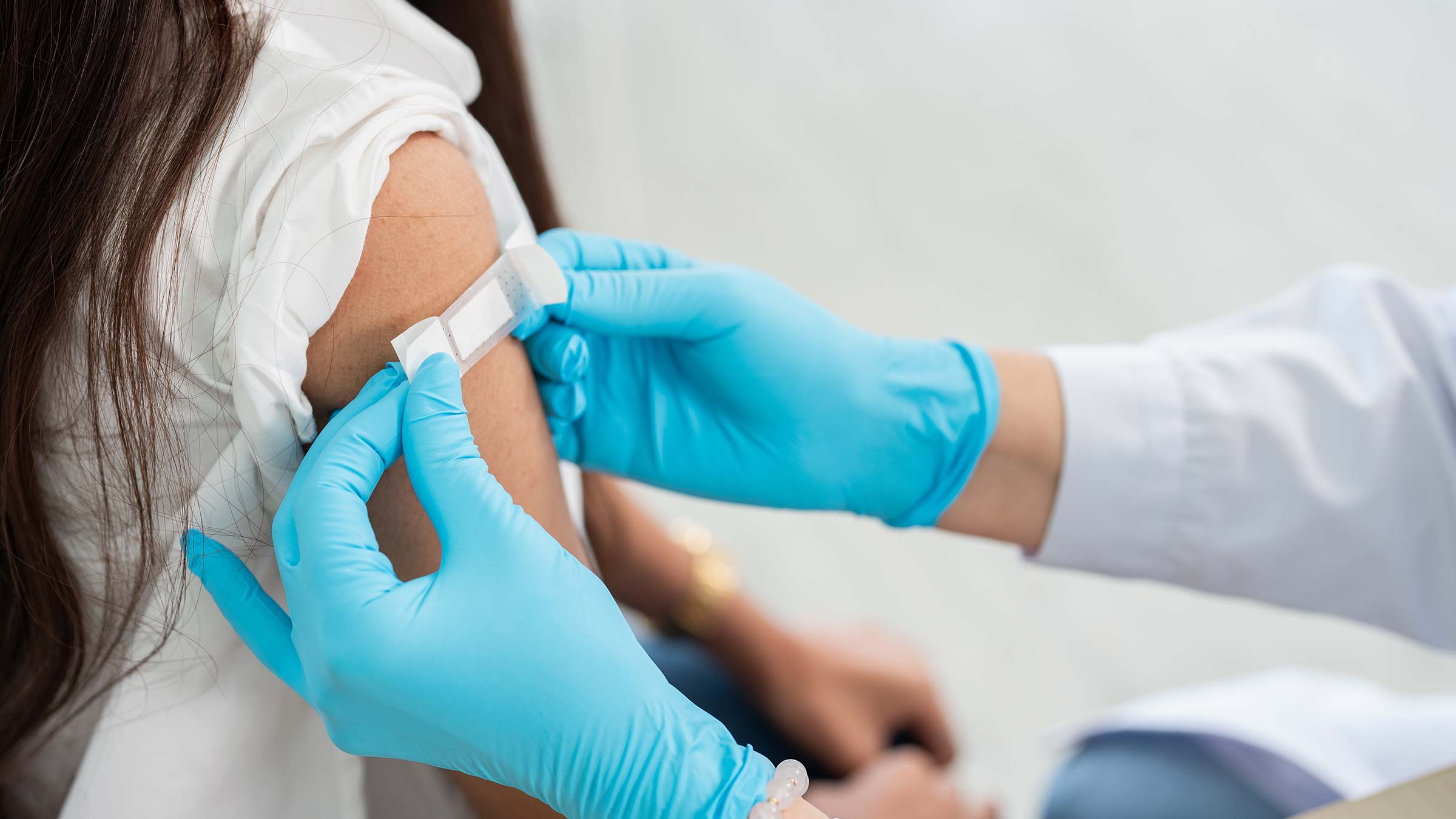
The federal Centers for Disease Control and Prevention recommends everyone age 6 months and older receive an updated COVID-19 vaccine formulation for 2024-2025.
You should get the updated vaccine whether or not you’ve ever received a COVID-19 vaccine or vaccine dose in the past. You should also receive the vaccine regardless of whether you’ve ever had a COVID-19 infection.
The COVID-19 vaccine can be given at the same time as other vaccines, including the 2024-2025 influenza (flu) vaccine, so it may be convenient to get both during the same visit.
Why is an updated COVID-19 vaccine recommended?
The COVID-19 virus is always changing, and new variants will circulate depending on the year and season. The updated vaccines will target the variants that are currently of highest concern and boost immune response to the virus.
Expect reformulated vaccines to become routine, similar to flu vaccines.
Where can I get the updated COVID-19 vaccine?
Updated COVID-19 vaccines are being provided by the Pfizer, Moderna and Novavax companies. The Ohio State University Wexner Medical Center is offering the vaccines, as are retail pharmacies.
Why should I get the updated COVID-19 vaccine?
Vaccines help reduce the likelihood of person-to-person transmission of COVID-19. If you do become infected, being vaccinated reduces the severity of symptoms and the risk of hospitalization.
Also, because long COVID continues to be a concern for people previously infected with the virus, the 2024-2025 COVID-19 vaccine is an effective tool to protect oneself.
When is the best time to get the updated COVID-19 vaccine?
Although administration earlier in the season will provide the most benefit, it’s never too late to receive the vaccine (that is, until another formulation is announced). Since its discovery, the COVID-19 virus has always been circulating and continues to circulate.
Who should not get the COVID-19 vaccine?
Check with your medical provider before getting a COVID-19 vaccine if you:
- Have had a prior allergic reaction to a COVID-19 vaccine
- Have a contraindication to any ingredient of the vaccine
- Have had a serious adverse/negative reaction to a prior vaccine
- Have or have had myocarditis (inflammation of the heart muscle) or pericarditis (inflammation of the lining outside of the heart)
- Have had multisystem inflammatory syndrome
If you are moderate to severely immunocompromised and are receiving the pemivibart (Pemgarda) infusion, check with your medical provider — there could be potential issues with vaccine timing around infusion doses.
How long does it take for the updated COVID-19 vaccine to provide protection?
Vaccines, including those for COVID-19, must stimulate the immune system to ramp up against proteins unique to the virus. It will take one to two weeks to develop full effects, although your body will start working on its defense right away.
How long will the COVID-19 vaccine provide protection?
Unfortunately, the COVID-19 vaccine’s protection declines over time. The best protection lasts through four to six months. With new variants emerging seasonally and the quick loss of protection, it’s important to get a new vaccine each season as recommended.
What are possible side effects of the updated COVID-19 vaccine?
People who get the vaccine may experience temporary viral symptoms, feeling generally unwell and having chills and possible fever. There could also be tenderness at the injection site for a few days. These side effects are similar to those from earlier COVID-19 vaccines.
If I’m ill, should I wait to receive the COVID-19 vaccine?
If you are moderately or severely ill, or you’re confirmed to have an active COVID-19 infection, you should wait to get the vaccine. Wait for the infection to resolve and until you’re outside the isolation requirement window before receiving a vaccine.
Will I only need to be vaccinated against COVID-19 one time this year?
People without any risk factors or immunocompromising conditions will only need one COVID-19 vaccine this year.
Some special populations may have additional recommendations per the CDC. Check with your health care provider.
How much will the vaccine cost?
The COVID-19 vaccine is available for free to most patients with private health insurance, Medicare or Medicaid plans. For those without health insurance, check with your local or state health department for potential options for free vaccines. The CDC’s Bridge Access Program, which provided some free COVID-19 vaccines for patients who are uninsured, ended in August 2024.
How do I make a vaccination appointment at Ohio State?
Contact your regular provider or schedule through MyChart. If you’re not a MyChart user, schedule by calling 614-688-8299 anytime 8 a.m.-5 pm. Monday through Friday. Learn more at the Ohio State Wexner Medical Center COVID-19 vaccination page.





